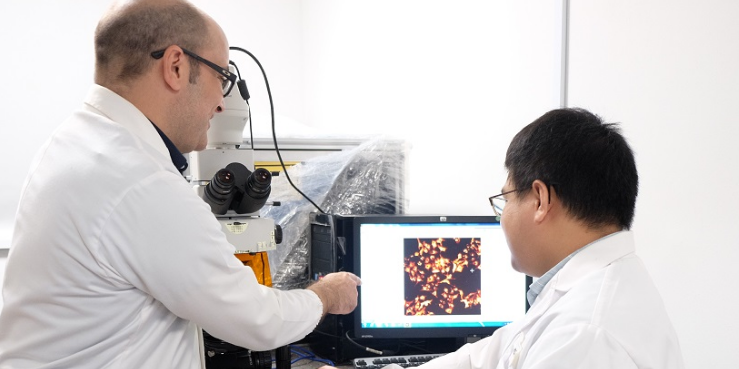
image credit- NTU Singapore
Scientists from Nanyang Technological University, Singapore (NTU Singapore) have developed a novel method of delivering drugs into human cells using large biological molecules, by first encasing them in a protein-based microdroplet.
This discovery promises to be faster, safer, more effective, and better suited for gene therapy, cancer treatment, and vaccine delivery, including mRNA-based vaccines such as those currently used for COVID-19 vaccinations by Pfizer and Moderna.
These microdroplets, made up of small proteins named peptides, can encase large biomacromolecules that carry drugs inside them. In doing so, they allow these biological molecules to enter cells, something the molecules cannot do by themselves.
In lab experiments, the team was able to successfully deliver fluorescent proteins, which are commonly used to demonstrate the efficiency of drug carriers, as well as the protein drug saporin through this method. By themselves, these proteins cannot enter the cell.
The research team has filed two patents based on their published study. The first patent is the team’s method of preparing the peptides into microdroplets for them to function as drug carriers. The other patent is for the method allowing the microdroplets to enter cells and then disintegrate once inside the cells such as to release the packaged drugs. The researchers are working to commercialise their drug delivery platform method through NTUitive, the University’s innovation and enterprise company.




